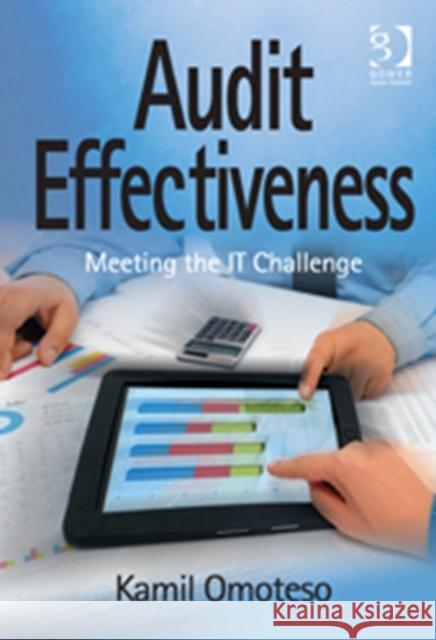Audit Effectiveness: Meeting the It Challenge » książka
Audit Effectiveness: Meeting the It Challenge
ISBN-13: 9781409434689 / Angielski / Twarda / 2013 / 224 str.
Audit Effectiveness: Meeting the It Challenge
ISBN-13: 9781409434689 / Angielski / Twarda / 2013 / 224 str.
(netto: 746,32 VAT: 5%)
Najniższa cena z 30 dni: 705,23
ok. 16-18 dni roboczych.
Darmowa dostawa!
In Audit Effectiveness, Dr Kamil Omoteso examines how information technology is changing the landscape for the audit profession as IT tools and techniques continue to be developed for auditors in the pursuit of quality, efficiency and effectiveness. In addition to shedding light on practical subjects such as audit automation, continuous online auditing and computer auditing, this book introduces some theory that helps explain the motivation for the use of new tools and techniques, and assists understanding of their impact on the quality of audit judgment. The book proposes a three-layered model - an integration of contingency, socio-technical systems and structuration theories - for a comprehensive understanding of IT's impact on audit. The model advocates that the use of IT in audits is a function of certain contingent factors that determine an optimal mix of human skills and technological capabilities, which would lead to changes in the nature of auditors' roles and outputs and audit organisations' structures. Dr Omoteso puts forward an audit automation maturity model that can help audit firms/departments to understand their current level of IT integration and how to systematically enhance their capabilities with a view to meeting modern IT challenges - taking them from the position of mere 'followers of technology' to that of effective 'leaders of technology'. Audit Effectiveness is for anyone practising in auditing or accounting automation, as well as for those with an academic or research interest in the challenges posed by technological advances for auditors in particular, and for managers in general.











